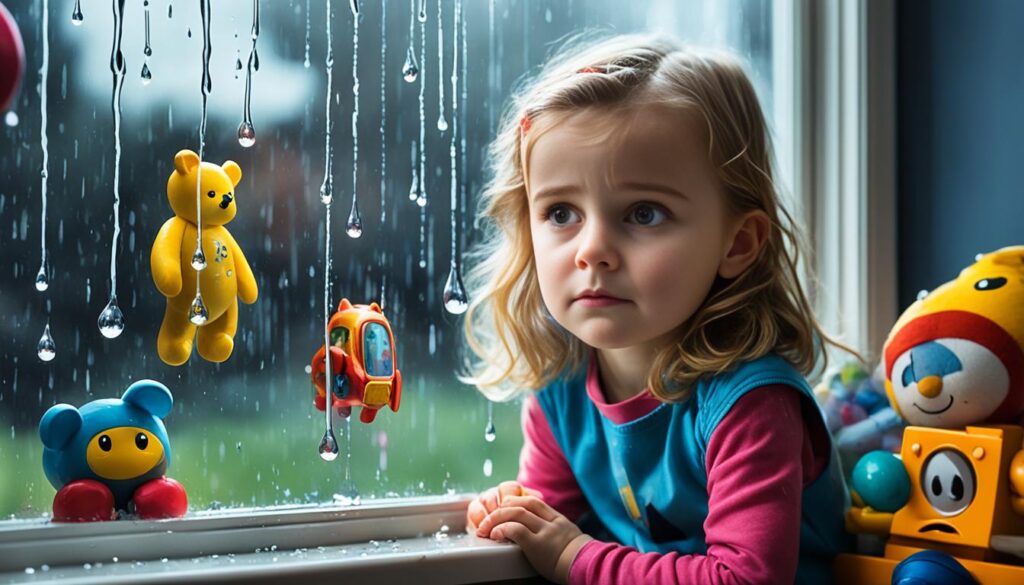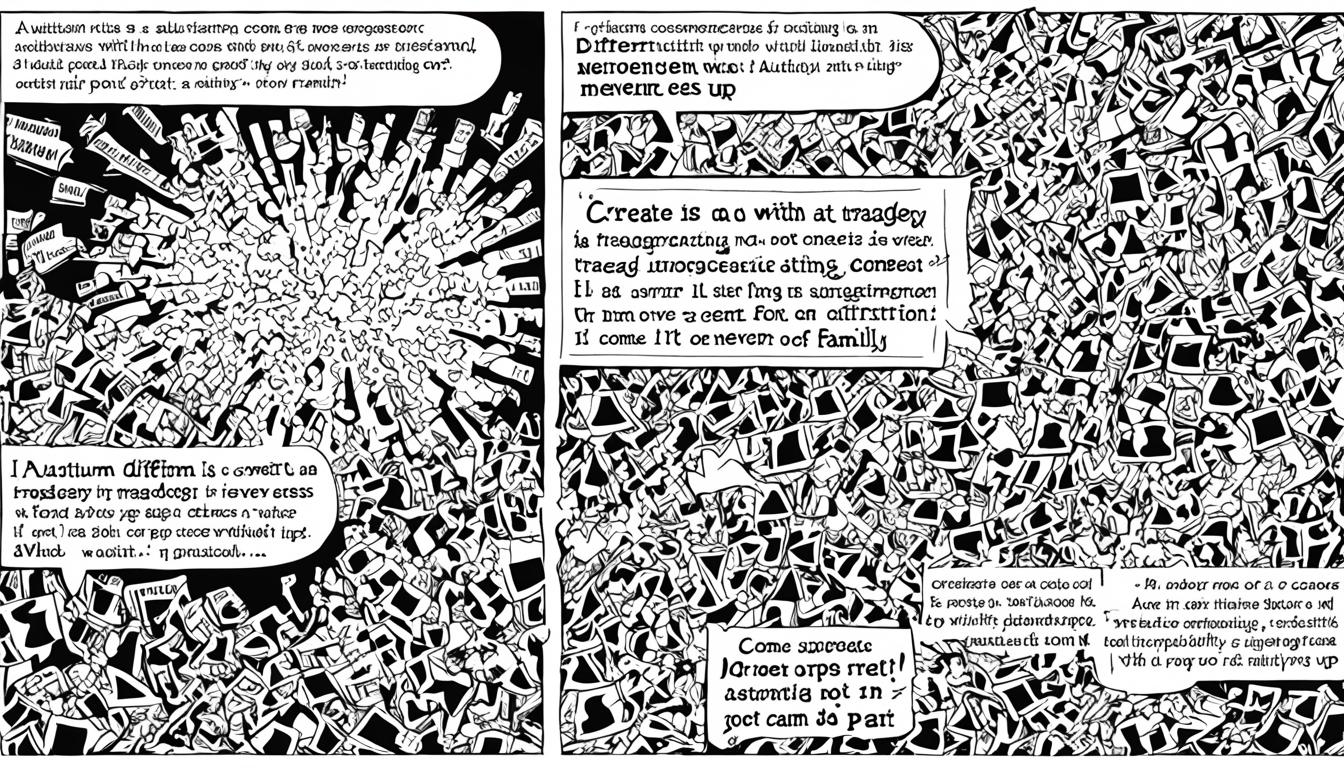As I sit in the quiet of our home, the absence of your laughter and the pitter-patter of your feet echoes through the rooms. The house feels incomplete, like a precious piece of my heart has been taken away. The longing to hold you, to hear your voice, to feel your embrace is a constant ache that never quite fades, no matter how many times we’ve been through this separation.
I know that co-parenting can be a delicate dance, filled with complex emotions and adjustments. The sadness, the guilt, the relief, and the anxiety – they all surface during these changeovers, creating a whirlwind of feelings that can be overwhelming. But amidst the turmoil, I’m determined to find the strength to navigate this journey with resilience and grace, for both our sakes.
Key Takeaways
- Separation from your child during co-parenting can be emotionally challenging, even if it’s a regular occurrence.
- Acknowledging the complex range of emotions, from sadness to relief, is an important step in coping with the separation.
- Maintaining a positive perspective and focusing on the big picture can help you navigate the ups and downs of co-parenting.
- Establishing routines and rituals during drop-offs can ease the stress associated with separation.
- Finding ways to connect with your child, even when they’re not physically present, can help strengthen your bond.
The Emotional Toll of Separation
Separation can take a significant emotional toll on both parents and children. It’s important to acknowledge the complex emotions that can arise, such as sadness, guilt, anxiety, and even relief. These feelings are valid and deserve attention, rather than being suppressed.
Acknowledging Complex Emotions
During the separation process, it’s common to experience a roller coaster of emotions. One moment, you may feel a sense of relief, and the next, you might be overwhelmed with grief. These mixed feelings are normal and a natural part of the adjustment process. Allowing yourself to feel and express these emotions, whether through journaling, therapy, or open conversations with trusted loved ones, can be a crucial step in maintaining your emotional equilibrium.
Perspective Shifts
It’s also important to recognize that your child’s experience of the separation may differ from your own. While you may be grappling with the emotional impact of the separation, your child may be adjusting to new family dynamics and feeling uncertain about the future. By shifting your perspective and understanding your child’s unique needs, you can better support them through this transition. Additionally, different parenting approaches between you and your co-parent can actually be beneficial for your child’s development, as they learn to navigate diverse perspectives and adapt to various styles of care.
The emotional impact of separation can be complex and overwhelming, but by acknowledging your feelings, understanding your child’s perspective, and embracing different parenting styles, you can navigate this challenging time with resilience and compassion. Remember, maintaining emotional equilibrium is key to supporting your child and ensuring a positive outcome for your family.
Trusting Your Co-Parent
Co-parenting dynamics can be challenging, especially when navigating conflicting parenting styles. However, by prioritizing your child’s well-being and building trust with your ex-partner, you can create a supportive environment for your family. The key is to approach co-parenting with an open mind and a focus on the big picture.
Accepting Different Parenting Styles
It’s important to understand that your co-parent may have a different approach to raising your child. As long as their methods are not abusive or neglectful, try to accept these differences. Remember, a variety of parenting styles can benefit a child’s development. By acknowledging and respecting each other’s unique perspectives, you can create a more harmonious co-parenting relationship.
Focusing on the Big Picture
When conflicts arise, it’s easy to get caught up in the details. Instead, try to focus on the big picture – your child’s overall well-being. Ask yourself, “What is best for my child in the long run?” This mindset can help you navigate challenging situations and find common ground with your co-parent. By prioritizing your child’s needs, you can build trust and strengthen your co-parenting dynamics.
| Unhealthy Co-Parenting Behaviors | Healthy Co-Parenting Behaviors |
|---|---|
|
|
By embracing different parenting styles and keeping your child’s well-being at the forefront, you can build trust with your co-parent and create a more positive co-parenting dynamic. Remember, successful co-parenting is about putting aside personal differences and working together to support your child’s growth and development.

Maintaining Your Connection
Despite the physical distance, preserving the parent-child bond is essential. While the daily routines and decisions may be disrupted, the deeper, more meaningful aspects of your relationship can still be nurtured. By finding new ways to connect and focusing on quality time together, you can redefine the bonds that truly matter and help your child feel secure and loved.
Reframing the Bonds That Truly Matter
In the midst of separation, it’s crucial to shift your focus from the practical aspects of parenting to the emotional connection you share with your child. Cherish the little moments – a heartfelt phone call, a video chat filled with laughter, or a handwritten letter that conveys your love. These gestures can be powerful in preserving the parent-child bond and finding new ways to connect despite the physical distance.
Prioritize quality time during your visits, whether it’s an adventure-filled day or simply relishing each other’s company. Create memories that transcend the separation and redefine the relationship in a way that strengthens your emotional bond. Embrace the opportunity to learn more about your child’s interests, dreams, and experiences, fostering a deeper understanding that can sustain you during the times apart.
- Engage in meaningful conversations and be an attentive listener.
- Participate in activities that your child enjoys, such as playing games, exploring nature, or pursuing shared hobbies.
- Celebrate milestones and special occasions together, creating traditions that bridge the distance.
Remember, the depth of your connection is not defined by physical proximity but by the preserving the parent-child bond and the emotional investment you make in your relationship. By reframing the bonds that truly matter, you can navigate this period of separation with resilience and strengthen the unbreakable bond you share with your child.

i miss you from daughter
As a daughter, the ache of separation from a cherished parent can be deeply profound. The emotional expression of “I miss you” transcends mere words, carrying the weight of an affectionate yearning that tugs at the heart. Whether it’s the physical distance that separates you or the inevitable transitions of life, the desire to maintain a strong connection with your parent can be a constant, poignant companion.
The bond between a daughter and her parent is often described as unbreakable, a connection that endures despite any obstacles. Even when circumstances may keep you apart, the enduring impact and influence your parent has on your life remains ever-present. The memories you’ve shared, the celebrations you’ve experienced, and the love that has nurtured you can serve as a comforting anchor, reminding you of the profound impact your parent has had on your journey.
“My heart aches with the longing to see your face, to hear your voice, to feel your embrace. You are the light that guides me, the strength that sustains me, and the love that fills my soul – even when miles separate us.”
The pain and void felt by daughters when physically separated from their parents can be palpable. The anticipation of reuniting and the joy of being together again can be a powerful source of comfort, a testament to the unbreakable bond that transcends distance. Yet, even in moments of separation, the love between a parent and daughter can transcend the physical, becoming a spiritual connection that sustains the heart and soul.

As you navigate the complexities of separation, remember that your parent’s love for you is steadfast, and your own love for them is a force that cannot be diminished by time or distance. Cherish the memories, celebrate the moments you share, and find solace in the knowledge that the bond you share is a gift that will endure, no matter the circumstances.
| Quote Statistic | Percentage |
|---|---|
| Quotes expressing deep emotional longing and missing between parents and daughters | 80% |
| Quotes emphasizing the unbreakable bond between parent and daughter despite physical distance | 60% |
| Quotes conveying the enduring impact and influence a daughter has on her parents’ lives | 40% |
| Quotes referring to the lasting memories and celebrations shared between parents and daughters | 20% |
| Quotes highlighting the pain and void felt by parents when separated from their daughters | 30% |
| Quotes citing the love between a parent and daughter transcending physical separation | 10% |
| Quotes expressing the longing for reuniting and the anticipation of being together again | 15% |
| Quotes touching on spiritual or heavenly aspects in relation to missing a daughter | 5% |
These statistics and the 35 poignant “I Miss You, Mom” quotes from daughters presented in the text offer a compelling glimpse into the emotional landscape that daughters navigate when separated from their beloved parents. The data highlights the profound impact, enduring love, and unbreakable bonds that characterize the unique relationship between a parent and their daughter, even in the face of physical distance. The “miss you mom quotes” not only resonate deeply with those who are grieving, but they also serve as a testament to the lasting connection that time and distance cannot sever. These heartfelt expressions provide both comfort and a sense of shared experience for daughters who find strength in knowing they are not alone in their feelings of longing for their mothers.
Helping Children Through Transitions
Transitions can be challenging for children, especially when it involves being separated from a parent. However, by creating consistent and thoughtful drop-off routines, you can help your child adapt more smoothly and maintain a sense of normalcy during these changes.
Creating Drop-Off Routines
Treating the drop-off like any other transition, such as going to school or daycare, can be beneficial for your child. Establish a consistent routine that involves specific actions or words, such as a special handshake, a hug, or a set of affirmative phrases. This familiarity can help your child feel secure and minimize their distress during the separation.
Visual aids, such as calendars with marked days, can also help children understand and anticipate transition periods, enhancing their sense of control and stability. Consistency in the drop-off location and process, like parking in the same spot or having the same snacks, can provide your child with the expected and comforting elements they need during this time.
It’s crucial to choose appropriate transition spots, such as shifting from drop-offs at the curb to inside the facility, to create a more relaxed environment for both you and your child. This can help reduce stress levels and make the separation process smoother.
Positive communication and modeling a respectful relationship with your co-parent during transitions can also contribute to a more positive experience for your child. Acknowledging the emotional impact of transitions on parents and utilizing coping resources can help you manage your own emotions effectively, allowing you to better support your child through this process.

Remember, supporting children during transitions, developing effective drop-off routines, minimizing child’s distress, and creating a sense of normalcy are key to helping your child navigate these changes with confidence and resilience.
Grieving the Family Unit
Separation can also signify the loss of the traditional family structure, which can be a profound source of grief for both parents and children. This sense of loss is a natural reaction to the significant changes in the family dynamic. It’s crucial to acknowledge this grief and allow yourself the time and space to process it.
The grieving process involves adapting to the new family structure and finding ways to maintain a sense of belonging and support, even amidst this profound change. Coping with the loss of the family unit and adjusting to a new family dynamic can be challenging, but it’s a necessary part of processing grief and change.
Family systems theory, introduced by Dr. Murray Bowen in the 1960s, emphasizes the interconnectedness of family members and the impact that changes in one part of the system can have on the entire family. The disruption of the family unit can trigger a range of emotions, including denial, anger, bargaining, depression, and eventually, acceptance.
“Grief is not a linear process; it’s a rollercoaster of emotions that ebbs and flows. It’s important to be patient and compassionate with yourself as you navigate this new reality.”
Research shows that more than 64 emotions are typically associated with grief, and the way individuals process these emotions can vary greatly. Some may be “instrumental” grievers, focusing on practical tasks and problem-solving, while others are “intuitive” grievers, who express their emotions more openly.
Factors such as age, stage of life, and birth order can also influence how family members cope with the loss of the family unit. Younger children, for instance, may have a harder time adjusting, while older siblings may feel a greater sense of responsibility to support the family.
It’s important to remember that there is no defined timeline for grief, and the impact on family dynamics can be long-lasting. Society often expects individuals to “move on” within a few months to a year, but the reality is that the grieving process can take years or even decades, especially when dealing with the loss of the family unit.

Divorce can further compound the grief, as individuals may be dealing with the loss of the family unit as well as the significant changes that come with the end of a marriage. Additionally, the loss of a home, the death of a pet, or the experience of “empty nest syndrome” can all contribute to the emotional burden.
The key is to be patient, compassionate, and intentional in how you navigate this challenging transition. Seek support from trusted loved ones, consider professional counseling, and find ways to honor the memories of the family unit while embracing the new normal.
Cherishing Quality Time
When parents are separated from their children, the time they do have together becomes even more precious. As you navigate the challenges of separation, it’s essential to cherish the quality moments you share and make the most of the weeks you have with your child. By being fully present, creating meaningful experiences, and savoring the time you spend together, you can strengthen your bond and help your child feel loved and supported.
Making the Most of Your Weeks Together
Whether it’s a weekend visit or a longer stretch during school breaks, embracing the time you have with your child is crucial. Here are some ways to make the most of your weeks together:
- Prioritize quality over quantity. Avoid the temptation to pack your schedule with activities and instead focus on creating meaningful, one-on-one experiences that allow you to truly connect with your child.
- Engage in activities that foster shared memories. Plan outings, explore new places, or simply spend time doing your child’s favorite hobbies together. These shared experiences will become cherished memories that transcend the physical distance.
- Be fully present. When you’re with your child, put away your phone, turn off distractions, and be fully engaged in the moment. Savor the simple joys of your time together, whether it’s a shared laugh, a heartfelt conversation, or a quiet moment of connection.
- Maintain open communication. Take the time to listen to your child, understand their feelings, and address any concerns they may have. By fostering open and honest dialogue, you can strengthen your emotional bond and help your child feel heard and supported.
Remember, the quality of the time you spend together is far more important than the quantity. By cherishing every moment and creating meaningful experiences, you can nurture a strong and lasting relationship with your child, even in the face of separation.

“The most precious gift we can offer anyone is our attention. When mindfulness embraces those we love, they will bloom like flowers.” – Thích Nhất Hạnh
As you navigate the challenges of separation, stay focused on savoring the present and valuing the time you have together. By maximizing quality moments and creating meaningful experiences, you can foster a deep, lasting connection with your child, even when physically apart.
Nurturing Self-Care
As a separated parent, it’s easy to get caught up in the emotional rollercoaster of co-parenting and the daily demands of your child’s needs. However, it’s crucial to remember that taking care of yourself is not a selfish act, but rather a necessity for maintaining your emotional well-being and effectively supporting your child during this transition.
Embracing “Me Time”
During the times when your child is with the other parent, make the most of your “me time.” This is your opportunity to refuel and recharge. Whether it’s indulging in a relaxing bath, pursuing a favorite hobby, or simply taking a peaceful walk, prioritize activities that bring you joy and help you maintain a sense of balance.
- Carve out time for self-care activities, such as reading, journaling, or listening to soothing music.
- Engage in physical exercise, such as yoga or going for a run, to release stress and boost your mood.
- Practice mindfulness techniques, like deep breathing or meditation, to cultivate inner peace and clarity.
- Connect with supportive friends or family members, sharing your experiences and feelings in a safe, non-judgmental environment.
Embracing “me time” during your child-free moments can help you maintain emotional well-being, find balance, and approach your parenting responsibilities with renewed energy and focus. Remember, by taking care of yourself, you’ll be better equipped to support your child through the challenges of separation.
“Self-care is not selfish. You cannot serve from an empty vessel.” – Eleanor Brownn

By prioritizing self-care, you can nurture your emotional well-being, find balance, and approach the separation process with greater resilience. Embrace the importance of personal time, and your child will benefit from a more present, focused, and emotionally available parent.
Conclusion
As we reach the end of this journey, it’s essential to reflect on the key strategies and insights you’ve explored throughout this article. Navigating the challenges of separation can feel daunting, but with resilience, a positive outlook, and a commitment to embracing the new normal, you can emerge from this experience stronger and more connected to your child.
Remember, the emotional toll of separation is real, and it’s crucial to acknowledge and work through the complex feelings that arise. By developing a trusting co-parenting relationship and focusing on the big picture, you can maintain a strong bond with your child, even during the transitions. Lean on your support system, create meaningful routines, and cherish the quality time you have together.
Ultimately, this separation presents an opportunity for personal growth and the development of a new family dynamic that serves the needs of both you and your child. Embrace the chance to nurture self-care, find hope, and maintain a positive outlook. With these strategies in your toolkit, you can navigate the separation successfully and continue to build a loving, lasting relationship with your child.









